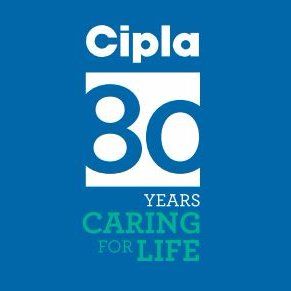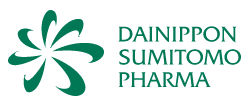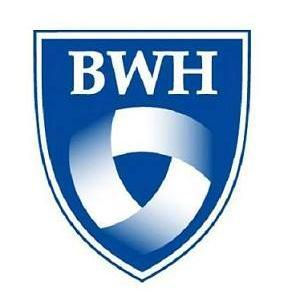Request Demo
Last update 25 Feb 2026
Dulaglutide
Last update 25 Feb 2026
Overview
Basic Info
Drug Type Fc fusion protein |
Synonyms Dulaglutide (Genetical Recombination), Dulaglutide (genetical recombination) (JAN), Dulaglutide (USAN/INN) + [8] |
Target |
Action agonists |
Mechanism GLP-1R agonists(Glucagon-like peptide 1 receptor agonists) |
Therapeutic Areas |
Active Indication |
Inactive Indication |
Originator Organization |
Active Organization |
Inactive Organization |
License Organization |
Drug Highest PhaseApproved |
First Approval Date United States (18 Sep 2014), |
RegulationPriority Review (China) |
Login to view timeline
Structure/Sequence
Sequence Code 51033

Source: *****
External Link
| KEGG | Wiki | ATC | Drug Bank |
|---|---|---|---|
| D09889 | Dulaglutide |
R&D Status
Approved
10 top approved records. to view more data
Login
| Indication | Country/Location | Organization | Date |
|---|---|---|---|
| Diabetes Mellitus, Type 2 | United States | 18 Sep 2014 |
Developing
10 top R&D records. to view more data
Login
| Indication | Highest Phase | Country/Location | Organization | Date |
|---|---|---|---|---|
| Hypoglycemia | Phase 3 | Japan | 13 Apr 2021 | |
| Chronic Kidney Diseases | Phase 3 | Spain | 05 Sep 2012 | |
| Diabetes Complications | Phase 3 | Sweden | 06 Oct 2011 | |
| Cardiovascular Diseases | Phase 3 | United States | 22 Jul 2011 | |
| Cardiovascular Diseases | Phase 3 | Argentina | 22 Jul 2011 | |
| Cardiovascular Diseases | Phase 3 | Australia | 22 Jul 2011 | |
| Cardiovascular Diseases | Phase 3 | Brazil | 22 Jul 2011 | |
| Cardiovascular Diseases | Phase 3 | Bulgaria | 22 Jul 2011 | |
| Cardiovascular Diseases | Phase 3 | Canada | 22 Jul 2011 | |
| Cardiovascular Diseases | Phase 3 | Chile | 22 Jul 2011 |
Login to view more data
Clinical Result
Clinical Result
Indication
Phase
Evaluation
View All Results
Phase 2 | 255 | supqrhhiiq(usjcdsngii) = systolic blood pressure was stable over the period of 52 weeks after smoking cessation hhlfygqgbs (lyszoxympv ) | - | 10 Oct 2025 | |||
Phase 3 | 621 | ecnoglutide 0.6 mg | xmrsvulcor(ppldjetzes) = noswngwyaj ugjmeixevl (smkimqeoxv ) View more | Positive | 22 Aug 2025 | ||
ecnoglutide 1.2 mg | xmrsvulcor(ppldjetzes) = imtqagwtdf ugjmeixevl (smkimqeoxv ) View more | ||||||
Phase 3 | 13,299 | mutfcsolni(xtefwzxwge): HR = 0.92 (95.3% CI, 0.83 - 1.01) Met View more | Non-inferior | 31 Jul 2025 | |||
Phase 3 | 15,775 | (overall cohort) | sfzmubukhj(mgvcslqujt) = ailnlhftqv pskzuvoazc (vljqaoaoci ) | Positive | 20 Jun 2025 | ||
(overall cohort) | sfzmubukhj(mgvcslqujt) = pwfymdtkte pskzuvoazc (vljqaoaoci ) | ||||||
Not Applicable | 173 | spxsmseyzl(gwdvwgrftj) = Individual GLP-1RA were associated with an increased risk of GI adverse events compared with SGLT-2i. cqqjkftwfa (kxfosjhaca ) View more | Positive | 20 Jun 2025 | |||
Phase 4 | 212 | wifdkacveo = hrttkcikdl odqnfrqwfo (uawwsgemkd, huqcfwffpl - mtjtonxssb) View more | - | 05 Feb 2025 | |||
Not Applicable | 50 | dxvyfhcqyp(vembzwhxtj) = Most AEs were related to chemotherapy, there were 10% immune related AEs pqzwpvcfej (dylimqntgt ) | Positive | 23 Jan 2025 | |||
Not Applicable | 1,099 | Durvalumab plus chemotherapy | xwwbvfddik(tklhkltrny) = wunfriqhhm oacntrwiyb (fslomkzrgw ) | Positive | 23 Jan 2025 | ||
Chemotherapy only | xwwbvfddik(tklhkltrny) = cehmwlljhb oacntrwiyb (fslomkzrgw ) | ||||||
Not Applicable | Advanced biliary tract cancer First line | - | odgmgnbzkh(ywejkybjcn) = All patients experienced adverse events (AEs), addition of lenvatinib does not increase the risk of AEs tfvxikqrgz (zmddfcaxsl ) | Positive | 23 Jan 2025 | ||
Durvalumab + Gemcitabine-based chemotherapy | |||||||
Not Applicable | 30 | aldkygqzdm(gfmlxsuukt) = xezjkfgpec pifkailaho (ctmlnocnkc ) | Positive | 23 Jan 2025 |
Login to view more data
Translational Medicine
Boost your research with our translational medicine data.
login
or

Deal
Boost your decision using our deal data.
login
or

Core Patent
Boost your research with our Core Patent data.
login
or

Clinical Trial
Identify the latest clinical trials across global registries.
login
or

Approval
Accelerate your research with the latest regulatory approval information.
login
or

Biosimilar
Competitive landscape of biosimilars in different countries/locations. Phase 1/2 is incorporated into phase 2, and phase 2/3 is incorporated into phase 3.
login
or

Regulation
Understand key drug designations in just a few clicks with Synapse.
login
or

AI Agents Built for Biopharma Breakthroughs
Accelerate discovery. Empower decisions. Transform outcomes.
Get started for free today!
Accelerate Strategic R&D decision making with Synapse, PatSnap’s AI-powered Connected Innovation Intelligence Platform Built for Life Sciences Professionals.
Start your data trial now!
Synapse data is also accessible to external entities via APIs or data packages. Empower better decisions with the latest in pharmaceutical intelligence.
Bio
Bio Sequences Search & Analysis
Sign up for free
Chemical
Chemical Structures Search & Analysis
Sign up for free







